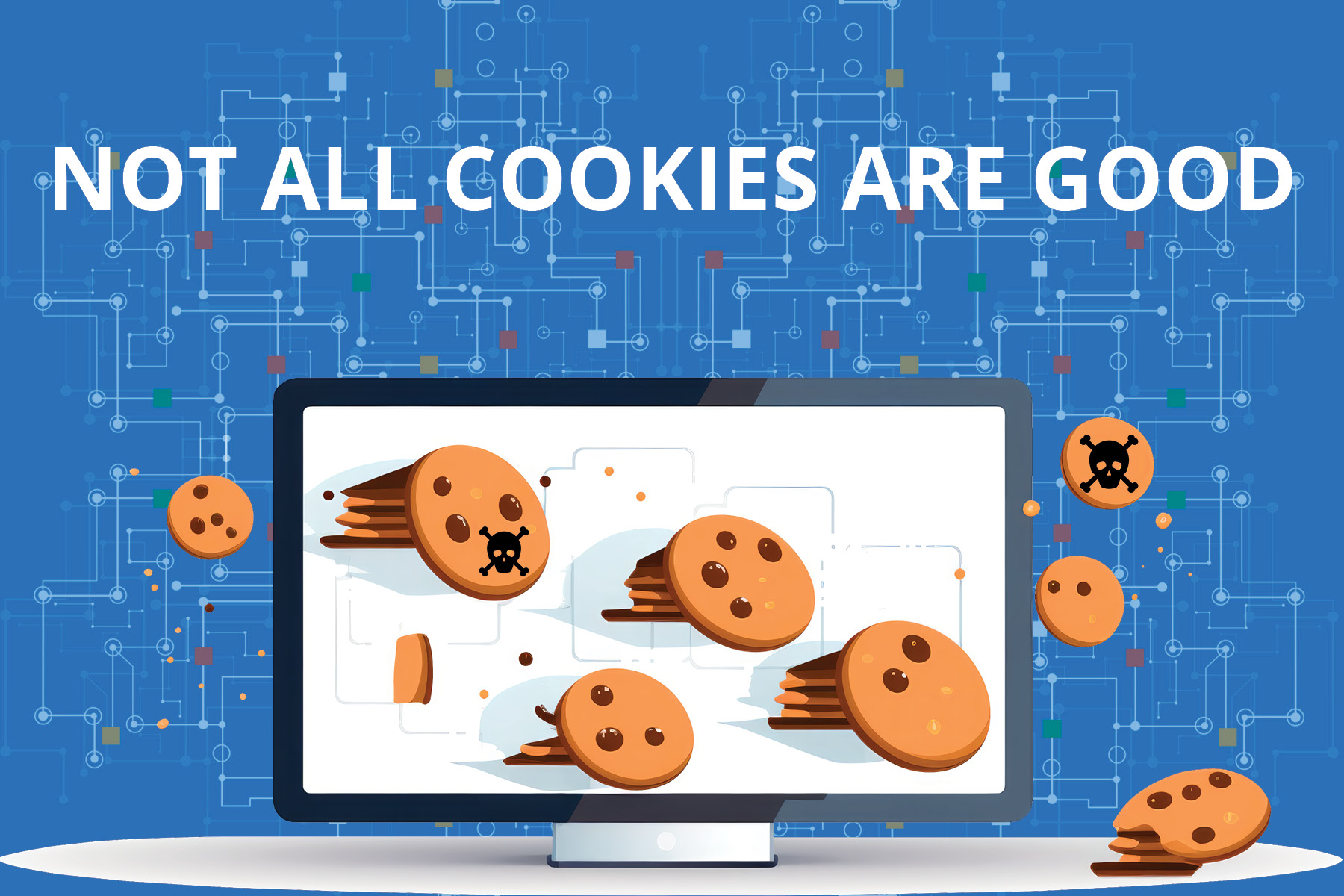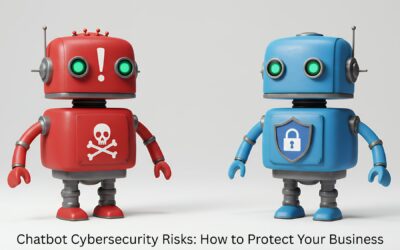When you hear “cookies,” your first thought might be of a delightful snack. But in the digital world, not all cookies are good. In fact, in the wrong hands, they can leave a sour taste by compromising your business security. Let’s break down how these less tasty cookies work and what you can do to protect your digital pantry.
What are Cookies?
In the online world, cookies aren’t something you can dunk in your coffee. These small digital files store bits of data about your browsing habits and are used by websites to remember your preferences and login details. They provide a better user experience and allow businesses and organizations to help get you to the most applicable information. Handy, right? But just like leaving a cookie jar unattended, there are risks involved.
How Cookies Can Be Compromised
- Session Hijacking: If a cybercriminal intercepts a cookie containing a session ID (which keeps you logged in), they can use it to impersonate you on the site.
- Cross-Site Scripting (XSS): Malicious scripts are injected into otherwise benign and trusted websites and if a cookie is accessed through such scripts, it can be stolen and misused.
- Cookie Replay Attacks: Using stolen cookie data, an attacker can perform a ‘replay’ attack to gain unauthorized access to the user’s account.
Real-World Impact
Let’s say a thief gets into your recipe box (your business’s site) through a stolen cookie. This breach can result in data theft, financial loss for your customers, and a damaged reputation for your business.
How to Reduce Risks
- Secure Cookie Settings: Set your digital cookies to be ‘HttpOnly’ (making them hard to snatch with a script) and ‘Secure’ (ensuring they’re sent through safe channels).
- Regular Updates and Patching: Keep your systems updated like you would check your recipes for errors—stay ahead of ways thieves might access your cookies.
- Awareness and Training: Teach your team to recognize phishing—like knowing when a cookie tastes off because the ingredients were wrong.
- Use Strong Encryption: Just like storing cookies in a locked jar, encrypting data in your cookies makes it harder for thieves to get a taste.
Though digital cookies are essential for browsing, they require careful handling to prevent security breaches. By securing your digital cookies and keeping your team informed, you can help ensure that the only cookies at risk are those left out during a team meeting. Get help.




